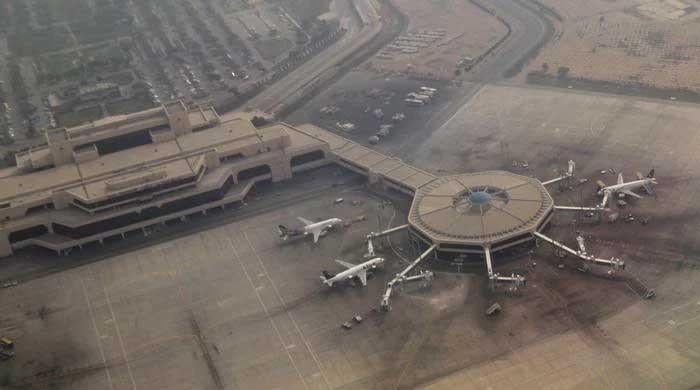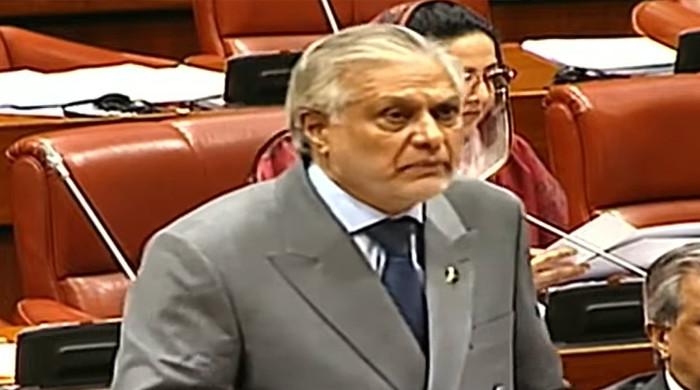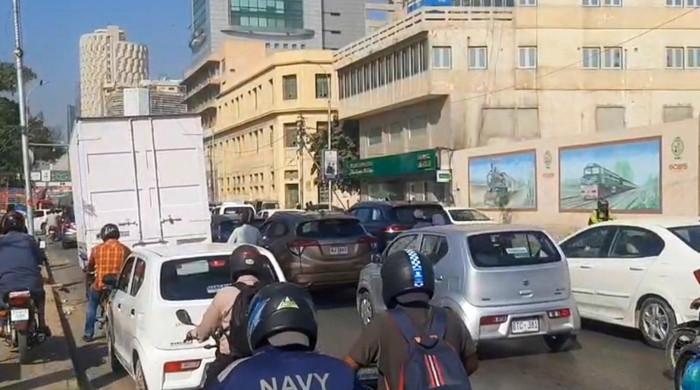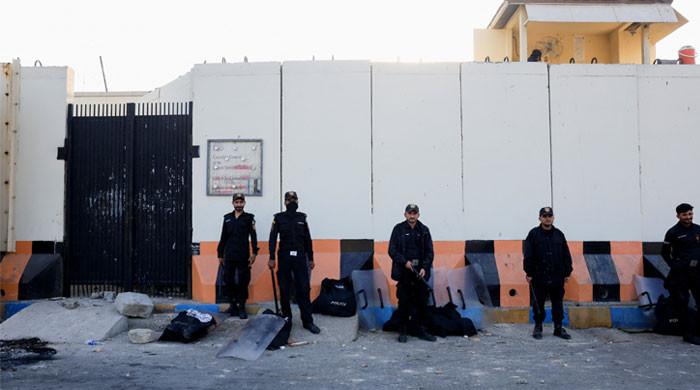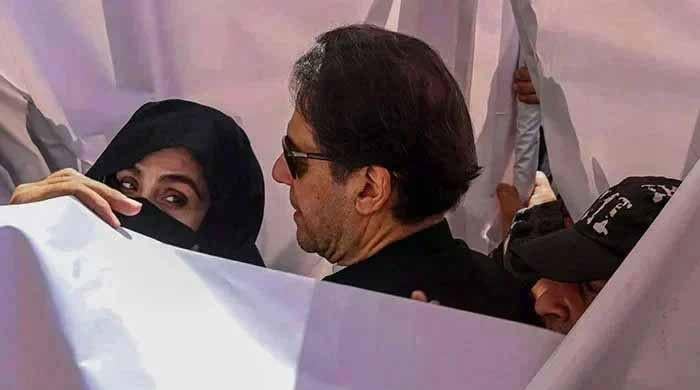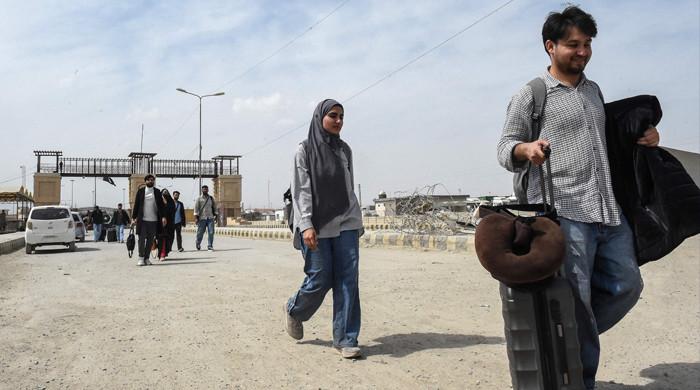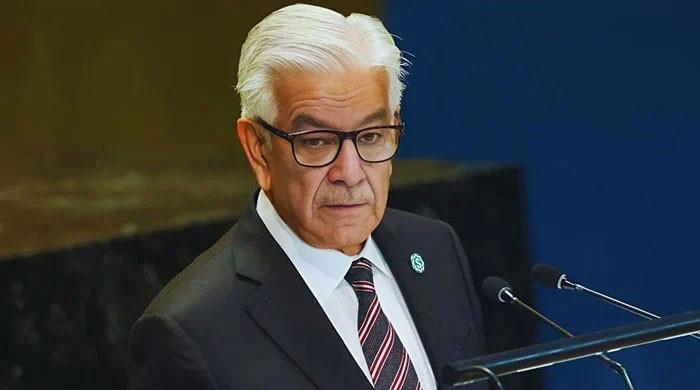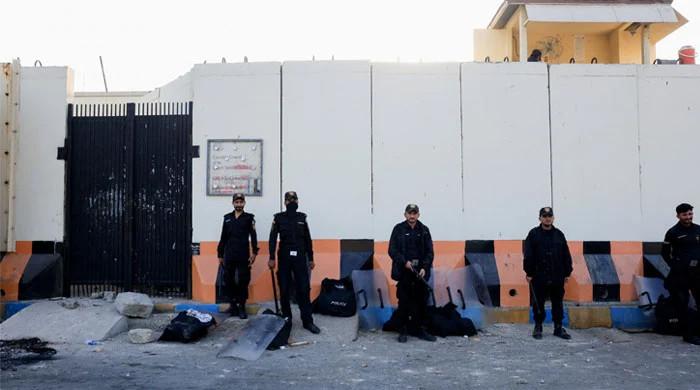KMC approves land transfer to K-Electric amid opposition fury
Karachi Mayor Murtaza Wahab says land deal resolves long-pending dispute advised by Supreme Court
May 20, 2025
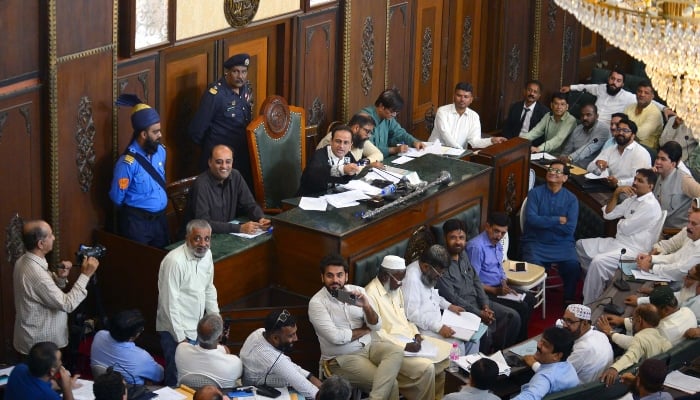
In a stormy session of the Karachi Metropolitan Corporation (KMC) Council on Monday, a total of 14 resolutions were passed, with the most hotly debated centred on a land transfer settlement between KMC and K-Electric, The News reported.
The council approved the transfer of 5,142 square yards of Railway Quarters land on Alland Road to K-Electric at the rate of Rs275,000 per square yard — a move sharply criticised by the opposition amid growing public frustration over load-shedding and power outages.
The resolution was passed despite fierce objections by opposition members led by Jamaat-e-Islami (JI), who accused the Pakistan Peoples Party (PPP)-led city administration of colluding with K-Electric at the expense of the people of Karachi.
Opposition Leader Saifuddin Advocate described the land transfer as a relief for an institute that loots the citizens. He said K-Electric was benefiting financially from the Municipal Utility Charges and Taxes (MUCT) collected alongside KMC revenues, yet failing to deliver uninterrupted electricity to the city.
Responding to this, Mayor Wahab said that when they took over Karachi’s affairs, this matter was already pending in the Supreme Court. The Supreme Court, he said, had directed that the mayor and the chief operating officer of K-Electric sit together and resolve the issue.
The land in Kharadar is claimed by the KPT, which says it belongs to the KMC. The Alland Road land, he said, had been with K-Electric for a long time.
K-Electric, he said, transfers the MUCT amount to us every one and a half months. "I will present further details during the budget session," he said, adding that they are now in a position to pay K-Electric’s bills ourselves. "Previously, we had to request funds from the Sindh government, which were deducted from the OZT (Octroi Zila Tax). This money belongs to the city and should be given to K-Electric. We still stand by our claim and are trying to set things right."
He urged the prime minister to bind K-Electric through Nepra and the Power Division. He said that he would write a letter to the prime minister regarding unannounced loadshedding in the city.
He also urged the Prime Minister to compel K-Electric to comply with regulations set by Nepra and the Power Division, adding that he would be writing to the premier regarding unannounced load-shedding in the metropolis.
Criticism over water shortages and power failures
Opposition members used the session to vent public grievances over prolonged water shortages and electricity outages. Saifuddin Advocate criticised what he termed the PPP’s parasitic governance in Karachi, calling Mayor Wahab a "parachute mayor" disconnected from ground realities.
"There is no water in the city, and the mayor is dreaming about Vision 2050," Saifuddin said. He pointed to the K-IV water project, which he claimed had seen costs escalate from Rs20 billion to Rs200 billion, with completion now pushed to 2027.
Quoting the Water Corporation’s managing director, Saifuddin said the project’s completion would still not be enough to meet the city’s growing demand.
In response, Wahab reiterated that the issue of K-IV fell under the purview of the federal government and the Water and Power Development Authority (WAPDA), and the city was doing its part to address urban challenges.
New fines for water misuse and event venue taxes
Among the resolutions passed was one approving fines of up to Rs10,000 for the misuse of Water Corporation supplies, such as washing vehicles or watering nurseries with municipal water. The penalties will be enforced by City Wardens and the Encroachment Department, based on complaints filed by Union Committee chairmen.
Mayor Wahab clarified that 100% of the collected fines will be directed to the respective Union Committees, which will also be tasked with identifying locations where violations occur.
Additionally, the Council approved the imposition of taxes on wedding lawns, banquet halls, and ballrooms operating outside cantonment areas. This measure is aimed at boosting KMC’s revenue and ensuring regulatory oversight of commercial event venues.
Tributes, park management, and hospital fees
The council passed a unanimous resolution lauding the Pakistan Armed Forces for their successful execution of Operation Bunyan-um-Marsoos and condemning Indian military aggression.
Opposition members also raised the issue of encroachments and mismanagement in public parks, particularly in reference to the Umar Sharif Park controversy. "Let parks remain parks," said Saifuddin. "They are meant for families and children, not for commercialisation."
Other resolutions approved included an increase in laboratory test fees at KMC hospitals, the delegation of authority for issuing trade licences to Union Committees, and the division of a plot in Orangi Township—part of which will be handed over to Pakistan Post, with the remainder designated for public-private partnerships or auction.
The Council also approved bids for commercial plots, and new management frameworks for KMC abattoirs and parks through rental or public-private partnership models.
JI stages protest outside council
Outside the session hall, councillors and Union Committee chairmen from JI staged a protest demonstration against acute water shortages and alleged discrimination by the PPP-led city government. The protestors carried placards and banners and chanted slogans against Mayor Wahab and the provincial administration.
Speaking to the media, Saifuddin said that the JI would escalate its Karachi Rights Movement after Eidul Azha, aiming to launch street agitation to topple what he described as a "rigged" PPP government. He accused the PPP of orchestrating a conspiracy to destabilise Karachi by withholding essential services.
He alleged that the city was facing both severe water shortages and electricity outages, while the mayor prioritised facilitating land transfer to K-Electric.
He further claimed that the institutions of Karachi had been hollowed out and reiterated that their protest movement would continue until citizens' demands were met.




